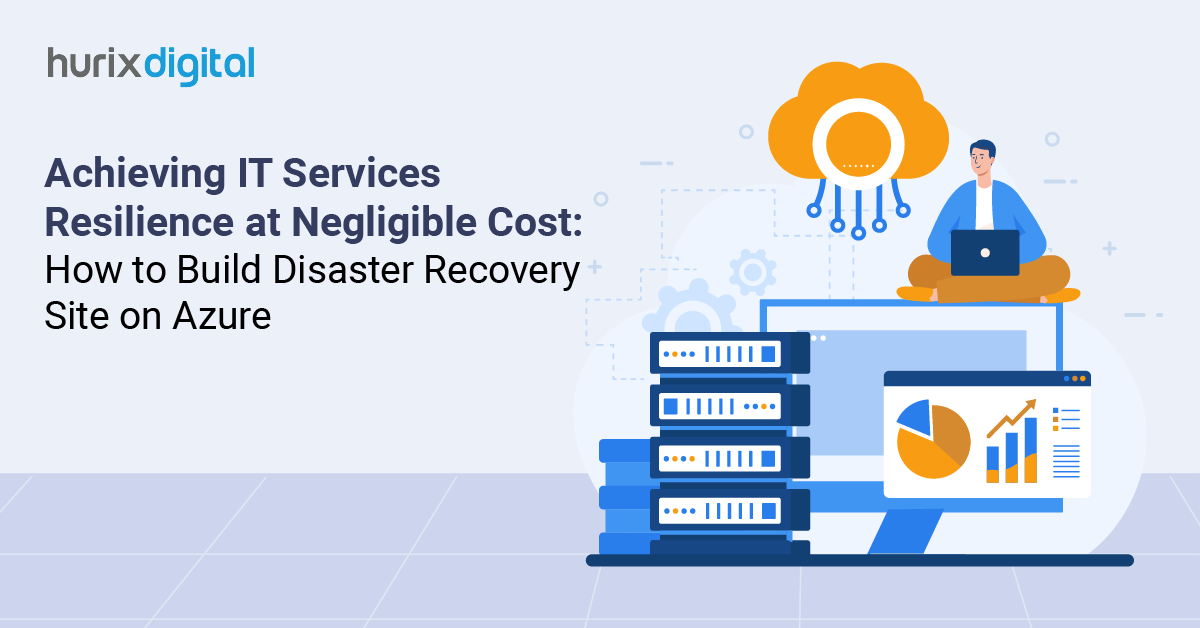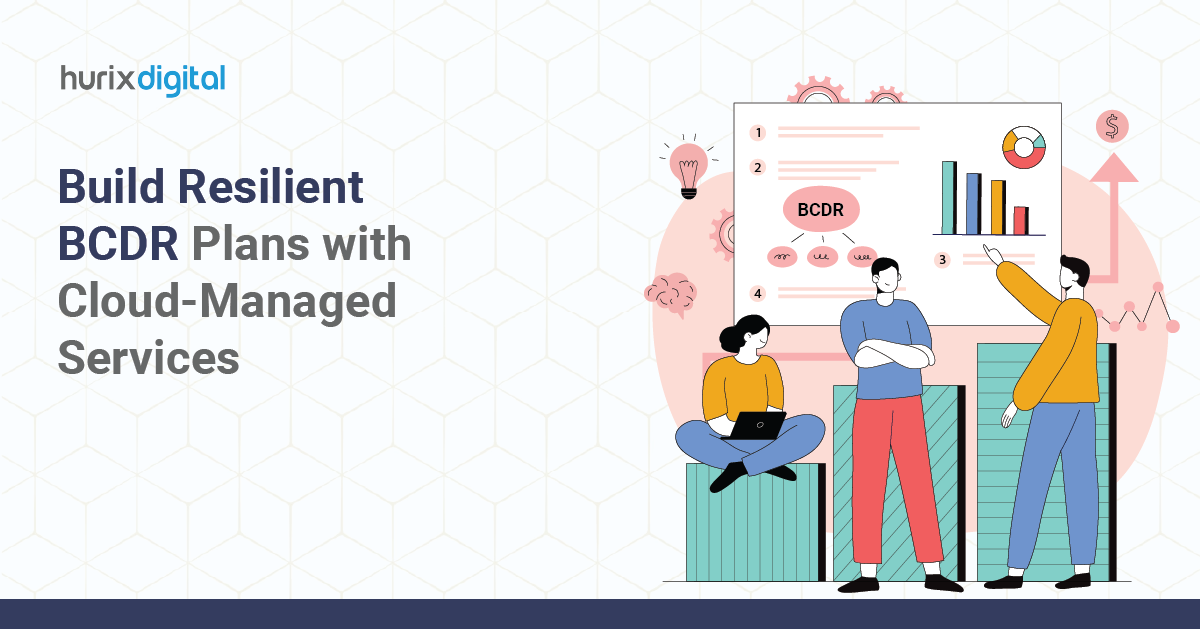
Mastering Industry-Specific Compliance in Azure Cloud
Summary
The blog covers cloud compliance challenges in healthcare and finance, detailing Azure’s tools for data encryption, access controls, auditing, and monitoring to meet legal obligations.
Today, more and more companies are shifting their operations to the cloud. By 2025, experts predict that 85% of enterprise infrastructure will be cloud-based.
While the move to the cloud brings many benefits, it also raises some big questions about cloud compliance, especially for industries like healthcare and finance. Compliance is literally required by law for these sectors.
Microsoft Azure sets itself apart as a dependable platform that aids companies in upholding stringent regulatory compliance requirements and preserving security. However, businesses adopting the Azure cloud must undoubtedly deal with certain issues with compliance.
While we examine them, let’s go over the finest approaches to avert and resolve these difficulties.
Table of Contents:
- Industry-Specific Compliance Challenges in Azure
- Best Practices for Ensuring Compliance in Azure Cloud
- Final Words
Industry-Specific Compliance Challenges in Azure
Microsoft Azure offers customized features to assist businesses in overcoming their industry-specific obstacles.
Following are some industries, their specific cloud compliance challenges, and how Azure helps to overcome them:
1. Healthcare: HIPAA & HITECH
Healthcare compliance, particularly under the Health Insurance Portability and Accountability Act and the Health Information Technology for Economic and Clinical Health Act, focuses heavily on safeguarding patient data. The main challenge here is ensuring that Protected Health Information is always secure, i.e., in storage, transit, or processing.
Azure offers multiple layers of protection to address these concerns.
- The first layer is basically the Azure Security Center, which monitors healthcare business workloads to spot possible threats and adhere to HIPAA regulations.
- Next is the Azure Key Vault, which allows healthcare organizations to encrypt sensitive data so that only authorized personnel can access it.
- Additionally, Azure supports Business Associate Agreements (BAAs), a mandatory requirement for any service provider handling PHI on behalf of healthcare entities, ensuring full compliance with HIPAA.
- Thanks to Azure’s HIPAA/HITRUST Blueprint, organizations can also find it easier to deploy the precise controls needed to comply with these standards. Healthcare firms can begin with a pre-built, compliant infrastructure rather than having to start from scratch.
2. Financial Services: PCI DSS & SOX
Financial institutions operate under a microscope, and compliance regulations like the Payment Card Industry Data Security Standard and SOX (Sarbanes-Oxley Act) govern the handling of highly sensitive financial data.
Assuring the security of transaction data and audit trails presents the main problem in this situation.
Azure provides the highest level of security for payment data by including built-in encryption for data both in transit and at rest, thereby meeting these compliance requirements.
- Azure Policy and Azure Monitor enable financial organizations to create governance rules and continuously track compliance, providing full visibility into data handling. This is required for PCI DSS compliance, where audit trails and reporting are non-negotiable.
- Azure’s Log Analytics feature allows for thorough tracking and reporting, ensuring that financial institutions maintain accurate and detailed records to meet SOX’s stringent requirements.
- Additionally, Azure Confidential Computing offers an additional degree of protection by encrypting data while processing. This feature is becoming increasingly important in the banking industry, where sensitive data is constantly in danger.
3. Government/Public Sector: FedRAMP
For government agencies and contractors working in the public sector, compliance with the Federal Risk and Authorization Management Program is key. FedRAMP guarantees that any cloud services utilized by government entities meet rigorous cloud security standards.
However, this creates a couple of challenges: agencies must verify that their chosen cloud platforms comply with FedRAMP requirements, and they also need to actively monitor ongoing compliance over time.
Here’s how Azure Cloud helps:
- Azure Government: The Azure Government service makes FedRAMP compliance simple to achieve. The purpose of this Azure version is to explicitly address the high-security requirements of state and federal government entities in the United States.
- Pre-Approved Blueprints: Azure further streamlines the FedRAMP process by offering pre-approved blueprints and compliance management tools that assist agencies in managing security measures. The platform’s integrated continuous monitoring and auditing features allow government bodies to maintain compliance without expending significant resources on manual oversight.
Also Read: Securing Your Azure Network: A Deep Dive into Virtual Network Appliances as Firewalls
Best Practices for Ensuring Compliance in Azure Cloud
Here are some best practices to help organizations maintain cloud compliance while utilizing the robust capabilities of Azure:
1. Implement Azure Policy and Blueprints
Implement Azure Policy to create rules that enforce compliance standards across your resources. Coupled with Blueprints, which package compliance requirements into reusable templates, these tools streamline the process and ensure consistent configurations across environments.
2. Implement Data Protection and Encryption
A key component of cloud infrastructure compliance is data security. To securely handle cryptographic keys and secrets and ensure that only authorized users and applications have access to sensitive data, utilize Azure Key Vault.
Establish data loss prevention (DLP) guidelines and use Azure Information Protection to further categorize and safeguard sensitive data.
3. Identity and Access Management
Managing identities and access is critical to compliance in Azure. Azure Active Directory (AAD) facilitates the implementation of strong identity management procedures. Verify that every user, particularly those who have access to sensitive information, has multi-factor authentication enabled. Also, make sure you use role-based access control to restrict access to Azure resources based on user roles.
4. Conduct Regular Audits and Assessments
Finally, routine audits and assessments are essential for identifying gaps in cloud compliance. Utilize Azure’s Compliance Manager to assess compliance status against various regulatory frameworks and identify areas for improvement.
Also Read: A CIO’s Guide to Ensuring Cloud Data Security and Compliance
Final Words
Businesses that use Azure Cloud should implement a proactive cloud compliance strategy that makes use of Azure’s integrated solutions for identity management, policy enforcement, continuous monitoring, and routine audits.
By doing this, businesses may optimize the advantages of cloud computing while safely protecting sensitive data and successfully complying with legal obligations.
Hurix Digital’s cloud solutions provide a holistic approach to digital transformation. Our Cloud Application Services streamline application development and deployment, while our secure Cloud Infrastructure offers scalability and reliability. With our expert cloud advisory and managed services, we let you focus on your core business. Feel free to get in touch with us to learn more!

Vice President and Strategic Business Unit Head – Cloud Services
A top technology management voice on LinkedIn with 20 Years of experience in Information Technology, Cloud Services, Digital Transformation, Application Modernisation, Managed Services, IT Security Engineering and Operations Management. An avid technology Leader, Leadership Speaker, Author & Coach.








